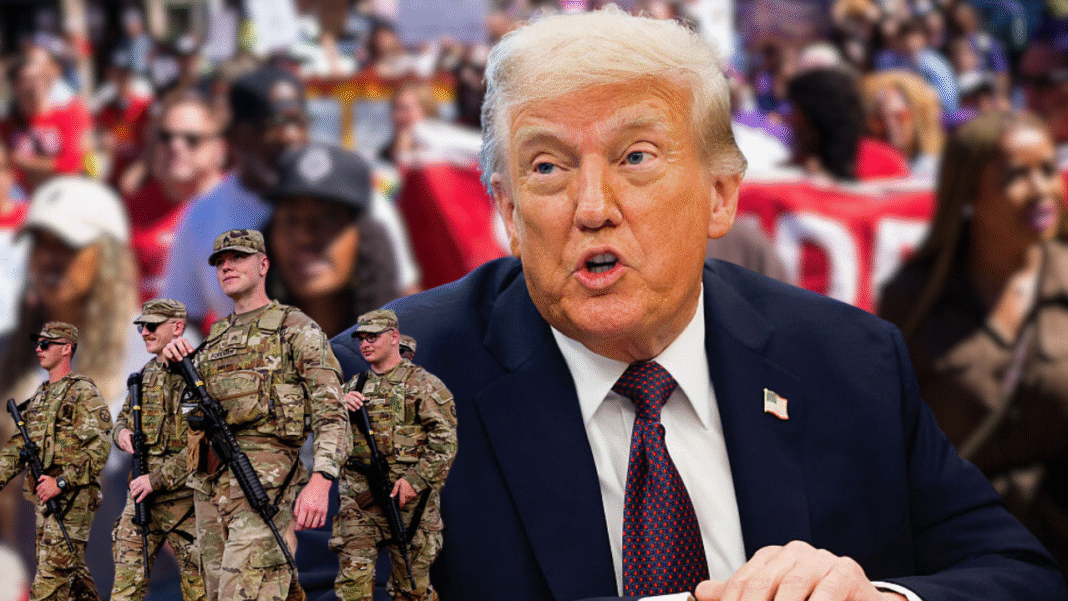### The Military’s Role in Urban America: A Tense Encounter in Chicago
President Donald Trump’s recent deployment of military troops in Chicago has ignited a fierce legal battle and sparked protests on the streets. Local leaders and activists describe the military presence as an “invasion” targeting the city’s majority Black and brown populations. Illinois Governor JB Pritzker expressed deep alarm over this militarization, especially following a harrowing ICE raid earlier, which saw women and children restrained in a majority-Black neighborhood. In response, both the state and city of Chicago have filed a federal lawsuit, aiming to halt the deployment of hundreds of troops.
### Accusations of Creating a War Zone
Criticism of the Trump administration’s immigration policy comes from various quarters, notably Pritzker, who stated that the White House seems intent on “creating a war zone” in order to justify increased military presence. This sentiment was echoed by Congressman Jonathan L. Jackson, who implored Republicans to reflect on who is being targeted by these actions. He pointed out that we all share immigrant backgrounds, and questioned why military interventions disproportionately hit the Black and brown communities.
### Justifying Military Presence
White House Press Secretary Karoline Leavitt defended the administration’s actions, suggesting that “Chicago needs more law enforcement reinforcement.” She cited alarming statistics of violence in the city, referencing significant shootings over recent weekends, including an incident involving a protester injured by a U.S. Border and Customs Protection agent. According to Leavitt, the President’s intention is simply to increase safety in the cities plagued by crime.
### Insurrection Act as a Tool for Deployment
As tensions rose over the court rulings possibly blocking military deployment, President Trump hinted at invoking the Insurrection Act. This 1807 law allows the president to deploy military or National Guard troops to combat what is perceived as insurrection. This prospect raises fears among local activists about the consequences of military force being used against civilians.
### Community Voices Against Militarization
Against this backdrop, advocates like Stacy Davis Gates, president of the Chicago Teachers Union, have voiced strong opposition. Gates argues that what Chicago needs are federal resources for social services like Medicaid and education, rather than military reinforcement. She emphasizes that the richest Americans benefit from tax cuts, with the military being misused to suppress the rights of poorer communities.
### Echoes of History: Militarization and Racism
The situation draws on a troubling history of militarization in America, particularly regarding its impact on Black communities. This narrative stretches back to tragedies like the Tulsa race massacre, where the National Guard was used to control Black citizens. While troops have occasionally been deployed to protect civil rights, the current atmosphere of militarization raises genuine fears among many, including Ed Anderson, a Black veteran and lead organizer for Common Defense. Anderson has remarked that soldiers are ill-equipped to engage in policing and worries about the potential for violent incidents in urban settings.
### Racial Narratives and Misconceptions
Critics of the Trump administration’s approach argue that systemic issues such as white supremacy and racism underlie the portrayal of crime in Black neighborhoods. Davis Gates contends that current policing practices are rooted in a legacy of discrimination. By marginalizing the voices of Black and brown communities, the narrative surrounding crime and military action is dangerously skewed.
### Lessons from History: Resistance and Activism
In this charged environment, Davis Gates has called for a renewed spirit of resistance among Black Americans. She references the historical efforts of enslaved people who organized to demand change, suggesting a similar approach is necessary today. The memory of past struggles for freedom serves as a compelling reminder that community action can lead to meaningful change.
### The Need for Collective Liberation
As the battle unfolds over the court’s decision on military deployment, Davis Gates stresses that understanding history is critical. She emphasizes that real change requires an active pursuit of democracy that encompasses all people, not just a selective few. The resistance movements of the past and present should inspire a strategic plan for achieving collective liberation, rather than waiting for governmental action.



